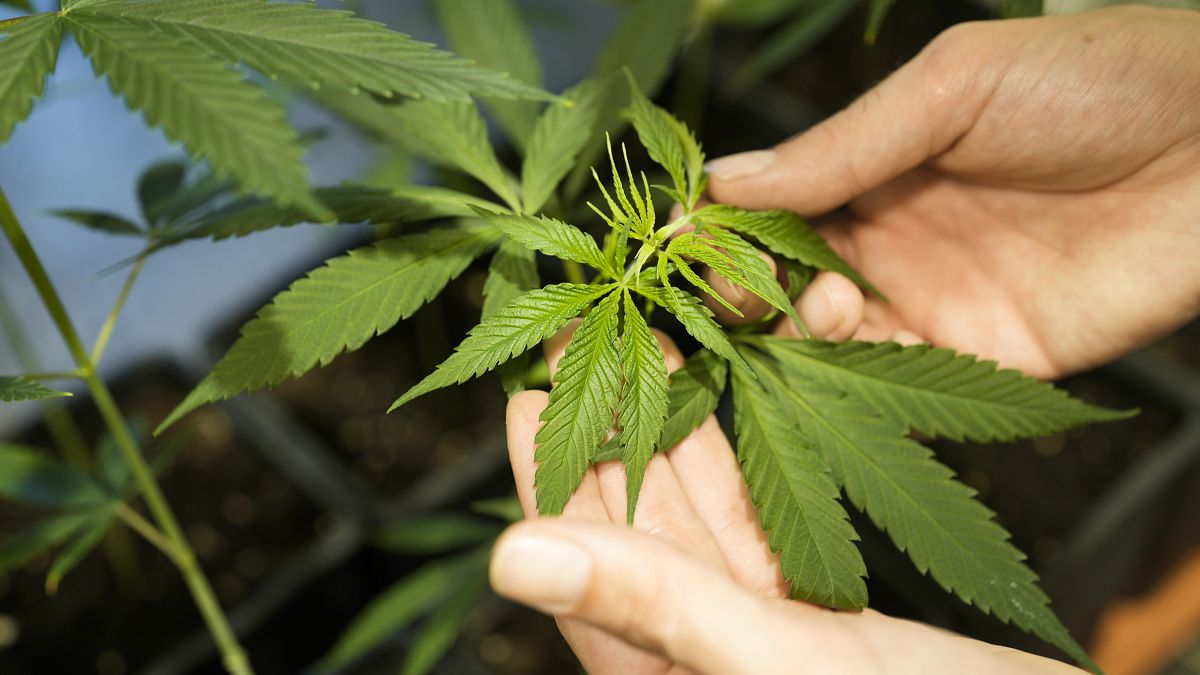Germany may soon have some of the most lenient marijuana laws in the European Union as lawmakers in the Bundestag debate legislation on cannabis.
German lawmakers have approved legislation that would make cannabis partially legal for personal use in the country.
The new law allows for the possession of 50g of cannabis for private consumption and growing up to three plants. In public, adults would be allowed to have up to 25g of cannabis.
The vote on Friday paved the way for the legislation to enter into force in April, although it could be delayed by the Bundesrat or Federal Council and must be signed into law by the president.
Some 407 MPs voted in favour of the draft law, with 226 MPs voting against and 4 abstentions.
The legislation greenlights the non-commercial cultivation and the controlled distribution of the drug by cannabis clubs.
It means Germany will soon have some of the most lenient marijuana laws in Europe, where the drug is still illegal in most countries.
Adults in Malta may carry up to 7g of cannabis and grow up to four plants at home based on legislation passed in 2021, but smoking marijuana in public is still prohibited.
In Luxembourg, private consumption is tolerated as well as the cultivation of four cannabis plants as of this year with possession of cannabis in public decriminalised.
German law aims to educate, reduce black market
The German law aims to "reduce the black market, prevent children and young people from consuming cannabis," and prevent the consumption of dangerous amounts of tetrahydrocannabinol (THC), the main psychoactive ingredient in cannabis, a spokesperson for the health ministry told Euronews.
"Health protection is therefore at the forefront of this law. The Minister has repeatedly emphasised that the previous drug policy has failed and that we need to find alternative approaches".
Privately grown cannabis, while allowed under the new legislation, would need to be protected from children, while strict restrictions would apply to cannabis clubs, which would have a limit of 500 members.
There will be a ban on advertising for these clubs whose members would receive a maximum of 25g of marijuana per day and 50g per month. The limit would be 30g for adults under the age of 21.
The government also plans to launch an education campaign on the effects and risks of cannabis.
Alexander Dobrindt, deputy chair of the Christian Democratic Union/Christian Social Union (CDU/CSU) parliamentary group, called the law "irresponsible" this week, adding that police and medical experts were against the measure.
"When the time comes, we will cancel this law," he said, according to a post from the party's X account.
Dr Klaus Reinhardt, President of the German Medical Association, said in a statement in August that the legislation would "trivialise a drug that is proven to be addictive and can lead to serious developmental damage - especially in adolescents and young adults".
Juan Martinez, head of medical cannabis company Curaleaf International, said in a statement that "the potential domino effect this may have on other European markets in the near future is not to be underestimated".
"Many EU countries have problems with illicit cannabis use and have previously stated they are looking to follow in Germany’s footsteps with an option that is safe and legal. But whether they do, and how quickly this might happen, is up for debate," Martinez added.
The new law could enter into force as early as April 1, with community cannabis clubs being allowed from July.
The law does not have to be approved by the Bundesrat, which represents the German federal states, but they could debate it if more than two-thirds object to the legislation.
This would mean that the legislation takes longer to implement, the Social Democratic Party told Euronews.
The German cabinet approved the legislation in August, paving the way for recreational use of the drug.



